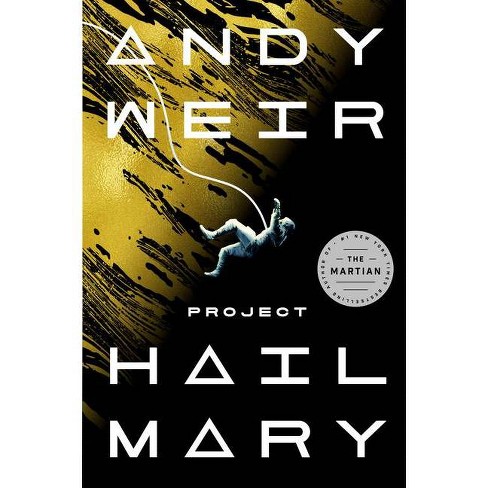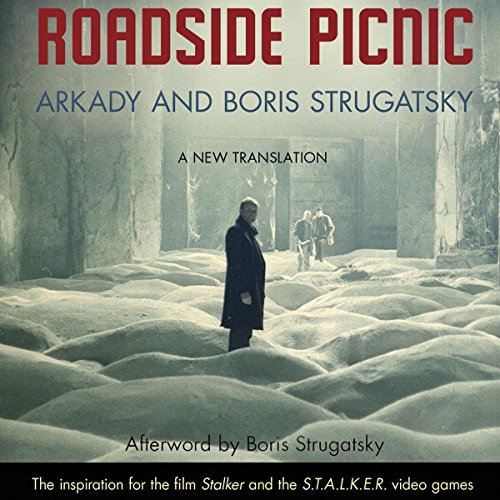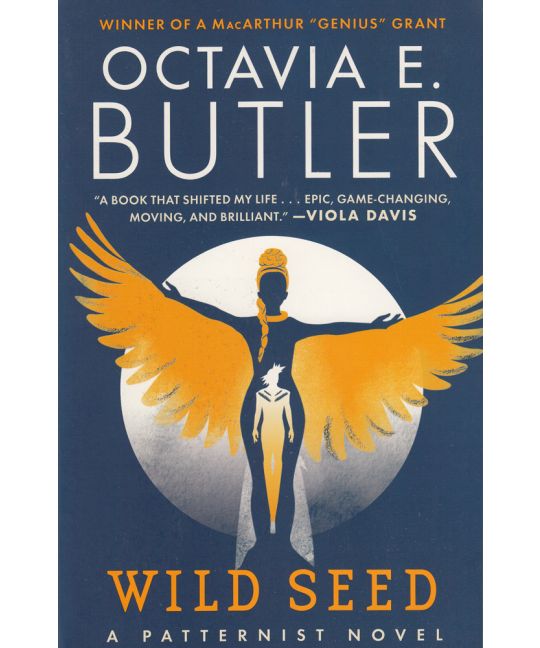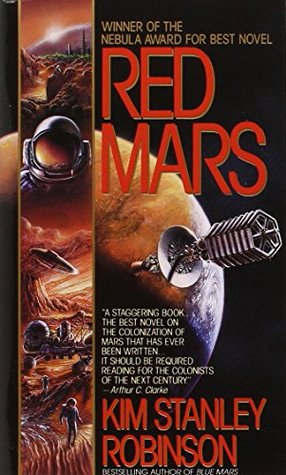
This may have been one of the best books I've read in quite some time! The third novel from the author of The Martian, Project Hail Mary is best described as a sci-fi romp that manages to both serve as an allegory for our own current struggle against imminent climate catastrophe, while still striking an optimistic tone. I won't go into spoilers, but the general plot concerns Ryland Grace, a former biologist-turned-middle school science teacher who wakes up aboard a spacecraft with no memory of his past. The structure of the novel is thoroughly engaging, switching from Ryland's current situation, punctuated by his attempts to figure out his past and what exactly he's doing in space, to Ryland's past, told in sequence following the successful return of his memories. One thing I really liked about this book that stood in contrast to another book I read that I'll talk about was the worldbuilding. Due to the structure of the novel, we're learning things about Ryland's situation and the world around him as he does, so it never seems like Andy Weir is just dumping info at the reader. There's a heavy amount of science and engineering woven into the story, but again, it never comes at the expense of the plot. It always drives the plot forward in a very organic way. While the novel is very science-driven, there's a strong human element to the story as well, and it explores a lot of questions that parallel what I'm sure many are thinking in response to current efforts to mitigate climate change. What do you do with the knowledge that the world as you know it is ending? How do you maintain the motivation to keep on going? I'd recommend this book to any sci-fi fan, and it's so engrossing so as to be a very quick read-- I finished it in 2-3 days, despite being a slow, often distracted reader.

Roadside Picnic is a classic of Russian sci-fi written by the brothers Arkady and Boris Strugatsky, and notably adapted to film in Stalker (1979), directed by Andrei Tarkovsky. Generally, the plot concerns the aftermath of an extraterrestrial visitation event that leaves dozens of abandoned ghost towns in locations all over the Earth, characterized by regions containing extraterrestrial structures and artifacts that have almost supernatural properties. In one particular locale, Red regularly enters what is called "the Zone," one of these extraterrestrial ghost towns, in order to salvage alien technology and artifacts to sell on the black market. One thing I liked about this book was that, in contrast to a lot of classic sci-fi of the same period, the story focuses on people very much on the margins of society, as opposed to captains of spacecraft, or scientists, or explorers, what have you. Red is driven to work as what is termed a "Stalker" not out of a sense of adventure, or scientific discovery, but rather economic and financial necessity. A lot of the actions of the characters are depicted in a somewhat morally ambiguous light, you're not quite sure who to trust or who is on the "right" side of an argument. The novel also does a great job of portraying the eeriness of the Zone, as well as the sheer ignorance in which the function and utility of the alien artifacts is known. If you've seen the movie (or read the book) Annihilation, the general plot is somewhat similar. If you like sci-fi with an eerie, unsettling vibe that makes you think, you might like Roadside Picnic.

Honestly? This book was one of the more disappointing I've read in recent memory. I say this because I'm a big fan of Octavia Butler, especially the books Parable of the Sower, Parable of the Talents, and Kindred. She also has a very good collection of short stories called Bloodchild that I'd recommend, especially if your reading time is limited. Wild Seed seems to be more overtly fantasy than much of her other work, focusing on two characters, Anyanwu and Doro, who are near immortal shapeshifters. Anyanwu can assume the shape of nearly everything at will, while Doro assumes the shape of creatures or humans that he kills. Much of the plot of Wild Seed is a kind of centuries-spanning cat-and-mouse game between Anyanwu and Doro, where the latter attempts to romantically involve himself with Anyanwu and attempt to win over her affections, and (especially as the book goes on) Anyanwu's attempts to carve out a new life for herself in unfamiliar lands, with the setting changing from 17th century Nigeria (or rather, in what is now Nigeria) to America in the 1800's. I think my biggest issue with this is that it feels that, due to both of the characters being basically immortal, the story has no stakes. There are members of Doro's and Anyanwu's extended family that get caught in the crossfire, but the main conflict between Doro pursuing Anyanwu doesn't feel like it really progresses into much of anything. Additionally, the plot seems like exists mostly to set up other books in a series, as opposed to telling a self-contained story.

This is a book I wanted to love very much. But I just couldn't! Red Mars is an account of the initial human colonization of Mars and its subsequent terraforming. There are a number of things I did really like about this book. We get to see the philosophical divides on the ethics of planetary exploration and terraforming as shown by the character's various attitudes on the subject, and the author definitely did his homework on the geology and atmosphere of the red planet. However, there are also a number of points that really prevent me from liking this book that much. While it's clear that the book is exhaustively researched (and as a planetary geologist, I tip my hat to Mr. Robinson), there are many sections where it seems like the author loses a sense of the human side of the story and opts to extensively describe the Martian landscape in the background. Which is cool! But ultimately, I feel like for good sci-fi the science has to be in service of the story, while parts of this book felt like the story was just window dressing around the author's knowledge of Mars. In contrast, Project Hail Mary was a much better example of how hard science should be woven into a narrative. Additionally, the large cast of the novel is a plus for illustrating the different perspectives of those who're a part of the initial human settlement of Mars, but there are interesting characters who get a chapter early on the book, and then we never hear from them again, or we really don't see a resolution for their character arc. It makes the story a bit hard to follow. Like Wild Seed, this is the first book in a trilogy/series, so maybe the other two books expound a bit more on certain characters.